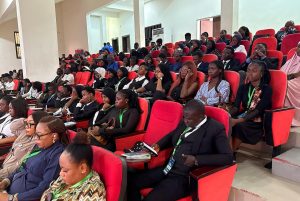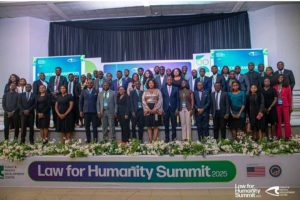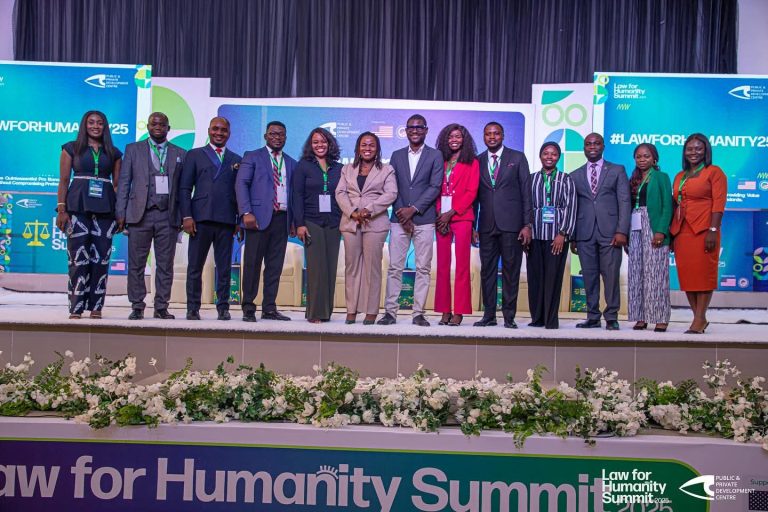Legal experts have urged Nigerian lawyers to maintain the highest ethical and professional standards in pro bono legal practice to ensure fair and effective access to justice for the nation’s most vulnerable citizens.
The call was made on Monday in Abuja during the 2025 Law and Humanity Summit organized by the Public and Private Development Centre (PPDC). The summit focused on strengthening free legal services and improving Nigeria’s justice system for people who cannot afford legal representation.
Delivering the keynote address, Professor Omoniyi Akinola, a respected legal scholar and law professor at Baze University, Abuja, said professionalism in pro bono practice is essential to maintaining public confidence in the justice system and protecting the image of the legal profession.
According to him, lawyers who handle pro bono cases must uphold integrity, diligence, and competence to promote the rule of law and ensure equal access to justice.
“The essence of pro bono work is to make justice accessible to all, especially those who lack the means to pay for legal representation,” Akinola said. “This noble goal can only be achieved when lawyers provide free services with the same excellence and commitment as paid cases.”
He further proposed that the Nigerian judiciary should consider pro bono service as a key criterion for the appointment of judges and notaries, saying this would promote a culture of selfless legal service and strengthen public trust in the judicial process.
Speaking on the theme, The Quintessential Pro Bono Lawyer: Providing Value Without Compromising Professional Standards,” Prof. Akinola emphasized that the success of pro bono practice depends on maintaining the same ethical discipline as in paid legal work.
“Every client deserves quality representation, regardless of financial capacity. Pro bono must never translate to substandard service,” he stressed.
He called for stronger collaboration between law faculties, international organizations, and legal aid institutions to improve capacity-building for law clinics and enhance coordination among legal professionals offering free services.
Akinola commended the PPDC for its sustained advocacy and support for legal aid programs, noting that such initiatives help close the justice gap in Nigeria and strengthen democratic accountability.
In her remarks, Ms. Lucy Abagi, Chief Executive Officer of the Public and Private Development Centre (PPDC), reaffirmed that pro bono legal services are a cornerstone of equal access to justice.
She stressed that “justice must never be determined by wealth, class, or circumstance,” adding that pro bono work should be seen as justice freely rendered, not as an act of charity.
According to her, “Pro bono service is where legal knowledge meets humanity’s need. It’s about fairness, empathy, and the rule of law working together to protect human dignity.”

Abagi praised Police Duty Solicitors stationed across various police commands for their “quiet revolution” in promoting accountability and protecting suspects’ rights during arrests and detentions. She noted that early legal intervention has prevented wrongful detentions and improved respect for human rights at police stations.
The PPDC chief also commended the active participation of university law clinics and student clinicians from institutions such as Ahmadu Bello University, University of Abuja, University of Jos, Baze University, Nasarawa State University, Nile University, Veritas University, Anchor University, and Philomath University
She said their involvement in custodial centre visits, case documentation, and detainee support had transformed legal education by connecting theory with real-world human experiences.
“Through this initiative, students are learning the practical meaning of justice and fairness beyond the classroom,” Abagi said.
Abagi listed the PPDC’s justice partners to include the Legal Aid Council of Nigeria, Nigerian Bar Association (NBA), Nigeria Police Force, Nigeria Correctional Service , and several civil society organizations.
She explained that this collaboration demonstrates that systemic justice reform is achievable through shared commitment to fairness, accountability, and transparency.
Other speakers, including Halimat Yusuph, Coordinator of the NBA Pro Bono Centre; Bamidele Ibikunle of the Legal Aid Council, and Anthony Ojo, Chairman of the NBA Garki Branch, commended the PPDC’s leadership in advancing pro bono practice nationwide.
They praised the organization’s collaborative model, which empowers lawyers, students, and duty solicitors to deliver free legal services without compromising professional integrity.
The legal experts reaffirmed their commitment to deepening partnerships that promote human rights, reduce pretrial detention, and guarantee fair and inclusive justice for all Nigerians.
“Through collective effort and unwavering professionalism, we can build a justice system that truly serves the people,” they concluded.




